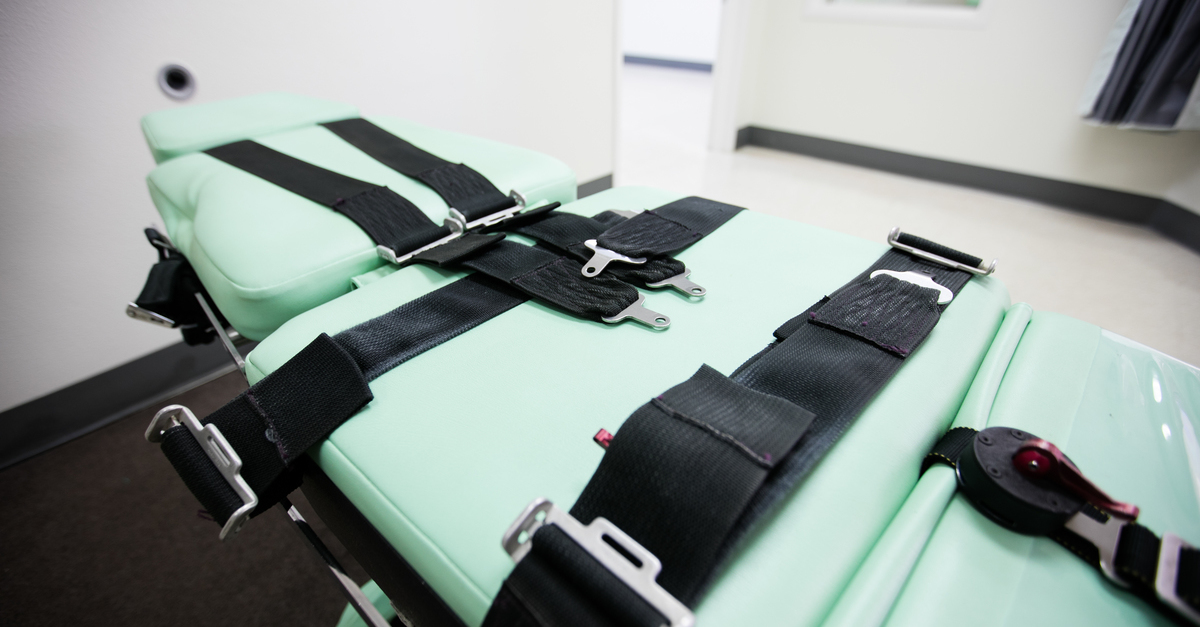
In a trio of cases of men seeking to be executed next to a spiritual advisor, a Muslim, Buddhist and Christian reached different outcomes before a Supreme Court that remained tight-lipped about its reasoning. The high court did not reveal why the justices denied Domineque Hakim Marcelle Ray a Muslim advisor before sending him to his death. Patrick Henry Murphy, a Buddhist priest, was spared the ultimate judgment, with one justice finding that prison officials could constitutionally deny a spiritual advisor so long as they did not play favorites. The Christian, Willie B. Smith III, was ordered to be provided with a pastor in an unsigned order.
At an afternoon hearing before the House Judiciary Committee on Tuesday, scholars and advocates warned that the Supreme Court’s explosi0n of unsigned summary orders without a written reasoning created a “shadow docket” eroding trust that could only lead the public to draw the worst inferences.
Commenting on these examples, the MacArthur Justice Center’s director Amir Ali told lawmakers that he did not intend to claim that religious animus caused the discrepancy.
“My point is the use of the shadow docket means we have no idea what justified the disparate treatment of these men, and when the difference is life or death, even the appearance of arbitrary decision-making risks the very legitimacy of our legal system,” Ali testified.
Coined by University of Chicago law professor William Baude in 2015, “shadow docket” refers to emergency rulings decided outside the court’s regular docket. The fact of the decisions may be known to the public, but how the justices voted and the thinking behind their decisions remain unknown. The terms defines a new way of thinking about a phenomenon that has existed as long as the Supreme Court, but scholars note that this docket is growing: in numbers, weight, significance and controversy.
“In the last two weeks alone, we’ve seen four major shadow docket rules: Three blocked state COVID-related restrictions. One refused to vacate a lower court injunction blocking an Alabama execution,” University of Texas professor Steve Vladeck told the representatives.
Though summary orders are widely considered to be reserved for matter of little controversy or precedential value, the Supreme Court has disposed of many of these cases along 5-4 presumably partisan lines.
“During the October 2017 term—Justice Kennedy’s last—only two shadow docket orders provoked four public dissents; over the next two terms, there were 20,” Vladeck continued.
Loren AliKhan, the solicitor general of the District of Columbia, told lawmakers that this trend came at the expense of public policy, particularly in the coronavirus era.
“In one unsigned two-paragraph decision decided less than a month before Election Day, the Supreme Court reinstated South Carolina’s requirement that mail-in ballots be signed in the presence of another individual, despite the need for social distancing in light of COVID,” AliKhan testified. “In another, the court reinstated Alabama’s ban on curbside voting. Because of timing, these rulings were effectively the last word on the matter.”
Florida State University College of Law Professor Michael Morley emphasized that the phrase “shadow docket” may be new, but unsigned orders on the public docket are not. He downplayed the trend and claimed that a way to address any perceived over-reliance on them would be to take legislative actions against broad judicial injunctions. Throughout the Trump era, conservatives railed against federal judges issuing nationwide injunctions blocking the administration’s key initiatives, but Morley proposed a new way of conceiving of the issue: less focused on the geographical reach of the junction than the target. Plaintiff-centered injunctions would be more narrowly tailored than those focused on the defendant, often the federal government.
California Rep. Darrell Issa, the top Republican of the Committee, was quick to take up that subject, which shifted the conversation from the hidden powers on the now-heavily conservative Supreme Court.
Vladeck, however, noted that injunction cases represent “not a majority or even a plurality” of the so-called “shadow docket.”
The House Judiciary Committee’s chairman Hank Johnson, a Democratic congressman from Georgia who is a lawyer and former judge, called the hearing the first time Congress explored the subject.
(Photo by California Department of Corrections and Rehabilitation via Getty Images)